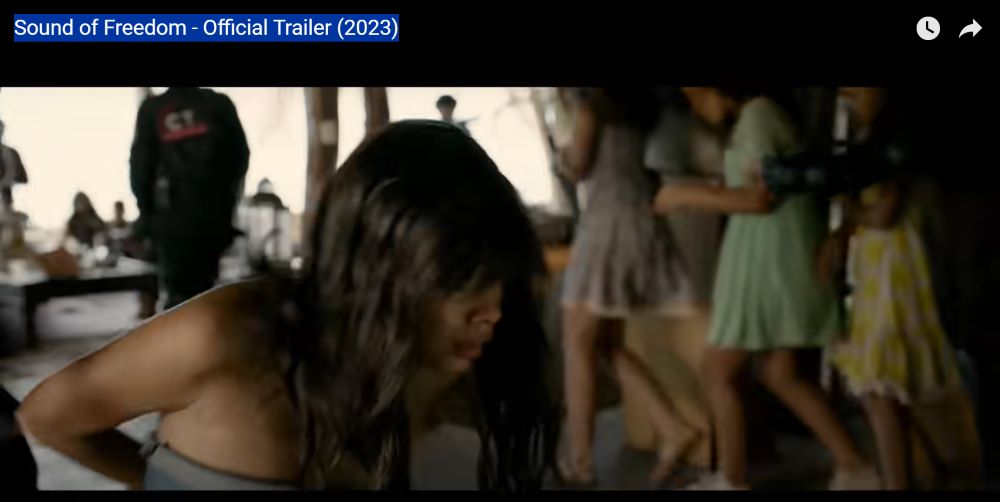The mission of this website is to raise awareness, provide resources and partner with other organizations that fight for the victims of child trafficking. Together, we can protect the innocence of children and give them the opportunity to live a life free from fear and exploitation.
The Sound of Freedom movie was the inspiration for this website.

Like many others, we were initially unaware of the global extent of child sex trafficking until the film "The Sound of Freedom" opened our eyes and inspired the creation of this website.
Legislative Inadequacies
While legislation against human trafficking exists both in the U.S. and internationally, its application and enforcement often fall short.
While legislation against human trafficking exists both in the U.S. and internationally, its application and enforcement often fall short. In the U.S., the Trafficking Victims Protection Act (TVPA, 2000) was enacted as the first comprehensive federal law to address trafficking. However, under-reporting of cases, difficulties in victim identification, and cross-jurisdictional challenges hamper its full implementation (Musto, 2009). Internationally, UN protocols against trafficking are often not adequately enforced due to lack of resources, corruption, and inconsistencies in national laws (UNODC, 2018).
Methods of Abduction and Subsequent Impacts
Psychological manipulation, coercion, abduction, and deceit are just some of the methods child sex traffickers use to entrap their victims.
Child sex-traffickers often employ methods of psychological manipulation, coercion, abduction, and deceit to entrap victims (U.S. Department of State, 2020). Once ensnared, victims often experience physical and emotional trauma, long-term psychological distress, and social stigma that can persist long after they escape or are rescued (Zimmerman & Watts, 2003). A victim's ability to trust others, form healthy relationships, and integrate into society is often significantly impaired.
Organ Trafficking and Ritualistic Killing
Crimes against children involving organ trafficking and satanic rituals, including child-sacrificing are taking place around the world.
Organ trafficking is a known problem, with the World Health Organization (WHO) estimating that up to 10,000 illegal transplants may take place worldwide each year. The victims of organ trafficking are typically from impoverished communities and are often deceived or coerced into giving up their organs. While some reports have linked organ trafficking to human trafficking networks, the extent of this overlap, particularly in regards to trafficked children, is not definitively known.
Crimes against children involving ritualistic practices, including mutilation and child-sacrificing, stand as deeply unsettling and severe criminal offenses. These ritualistic crimes, found in various regions around the world, are often tied to belief systems that utilize human body parts in rituals. Addressing these horrifying acts demands a multifaceted approach, one that unites legal measures, social consciousness, educational efforts, and international collaboration.
Moving Forward: Policy Suggestions and Awareness Measures
Policies should focus on stricter enforcement of existing laws, improving victim identification, and strengthening international cooperation.
To combat child sex trafficking, comprehensive, multi-pronged efforts involving policy changes, awareness campaigns, and victim support initiatives are required. Policies should focus on stricter enforcement of existing laws, improving victim identification, and strengthening international cooperation. Public awareness campaigns should aim at debunking common misconceptions about human trafficking, promoting recognition of signs of trafficking, and encouraging reporting.
Media outlets should be encouraged to handle the issue with sensitivity but without shying away from it. NGOs and educational institutions can also play an essential role in conducting research, providing education and training, and offering support to survivors.
In conclusion, the fight against child sex trafficking requires persistent, global commitment and concerted efforts from governments, media, NGOs, and individuals alike. Only then can the world hope to eradicate this scourge from our societies.
